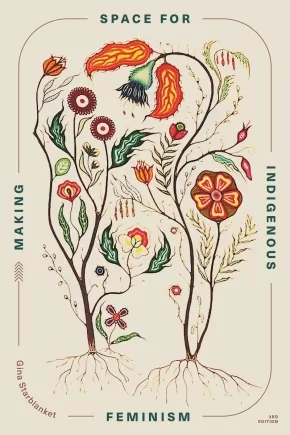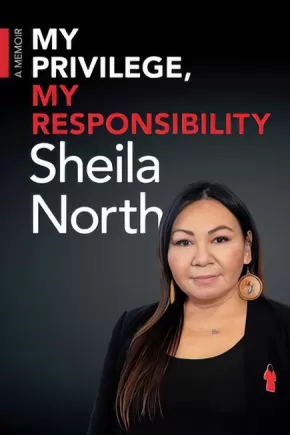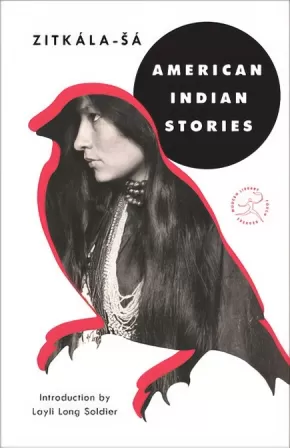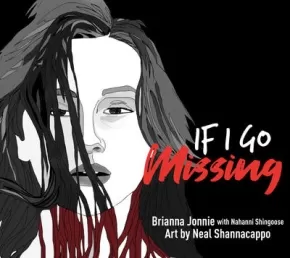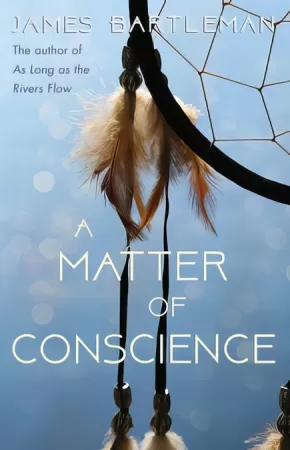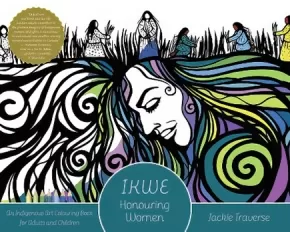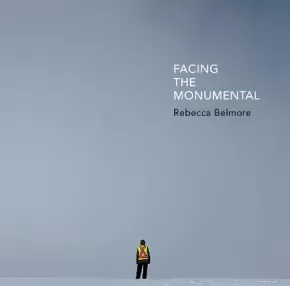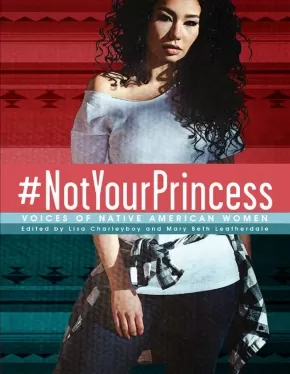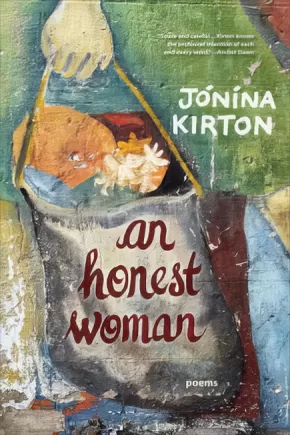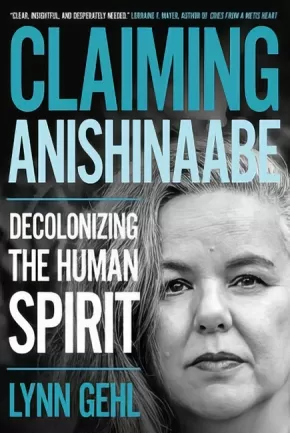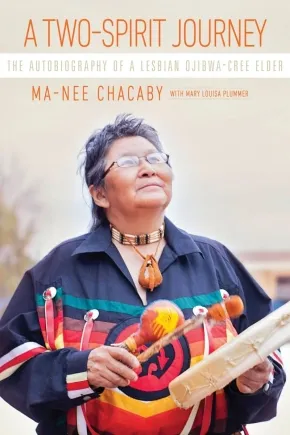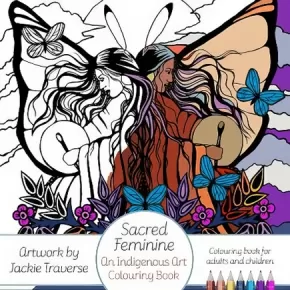
Indigenous Feminism
1
-
15
of
18 Results;
Sort By
Go To
of 2
Making Space for Indigenous Feminism - 3rd Edition
$40.00
Format:
Paperback
Text Content Territories:
Indigenous Canadian;
Grade Levels: 12; University/College;
ISBN / Barcode: 9781773635507
Synopsis:
Synopsis:
The third edition of this iconic collection features Indigenous feminist voices from across generations and locations, including many exciting new contributors.
The third edition of the iconic collection Making Space for Indigenous Feminism features feminist, queer and two-spirit voices from across generations and locations.
Feminism has much to offer Indigenous women, and all Indigenous Peoples, in their struggles against oppression. Indigenous feminists in the first edition fought for feminism to be considered a valid and essential intellectual and activist position. The second edition animated Indigenous feminisms through real-world applications. This third edition, curated by award-wining scholar Gina Starblanket, reflects and celebrates Indigenous feminism’s intergenerational longevity through the changing landscape of anti-colonial struggle and theory. Diverse contributors examine Indigenous feminism’s ongoing relevance to contemporary contexts and debates, including queer and two-spirit approaches to decolonization, gendered and sexualized violence, storytelling and narrative, digital and land-based presence, Black and Indigenous relationalities and more. This book bridges generations of powerful Indigenous feminist thinking to demonstrate the movement’s cruciality for today.
Reviews
“This collection is all feast, no fluff. It covers foundational elements of Indigenous feminism with depth and breadth and engages issues of national and international importance with considerable insight. Due to its readability and smart use of theory, this book is eminently teachable. I haven't highlighted this much in a long time.”— Margaret Robinson, Canada Research Chair in Reconciliation, Gender, and Identity
“This volume offers a view of the development and expansion of Indigenous feminisms as theory and praxis, reaffirming the validity of our respective Indigenous epistemologies to guide us into the future.”— Jennifer Nez Denetdale (Diné), University of New Mexico
“Multiplying are the calls for transformative healing issued by Indigenous feminism which is, at its core, about Indigenous sovereignty, solidarity, and liberatory justice for all. The diverse and incisive essays in Making Space for Indigenous Feminism (3rd ed) expose ongoing cis-heteropatriarchal settler colonialism, anti-Indigenous racism, and the erasure of gender and sexual diversity (including by Indigenous people ourselves), and their impacts upon minds, bodies, lived experiences, and relationships. Resistance and hope abound in the re-centring of (queer) Indigenous feminist futurisms: world-building that honours the self-determination of Indigenous women, girls, Two-Spirit, and trans folks, and promotes wellbeing for all of Creation.”— Chantal Fiola, author and associate professor, University of Manitoba
“This third edition continues to fulfill the promise of the title to make space for feminist interventions in Canadian Indigenous studies. Each author is committed to relational ethics and transformative praxis in addressing the most pressing issues that create epistemic and material injustices. From the heart rendering an intimate state-of-the-field assessment from pillars in the field, the politics of gender, policy, and violence manifested in Canada currently, to its latter chapters that open up new spaces by continuing to press for just Indigenous futures, of which decentering binaries of gender and sexuality is necessary, we see the importance of Indigenous feminist theorizing and praxis. Confronting gendered violence, heterosexism, disciplinary regimes, and colonialism with honesty and truth telling, Making Space generously offers us new paths to materialize a decolonial world.”— Mishuana Goeman, author of Mark My Words and Settler Aesthetics: Visualizing the Spectacle of Originary Moments in The New World
“Making Space for Indigenous Feminism provides us with powerful voices emerging from and incorporating past, present, and future. Each chapter continues to make space for the power of Indigenous feminisms, as women, femme, Queer, LGBTQS+ and Mad think together in a powerful analysis of our now. This latest edition of a classic, newly edited by Gina Starblanket, includes Elders and youth and brings us back to why Indigenous feminisms are the embodied, lived and felt knowledges that will inform our struggles going forward.”— Dian Million, University of Washington, American IndianStudies
Educator Information
Table of Contents
Extending Our Accounts of Indigenous Feminism—Joyce Green and Gina Starblanket
Section I: Home | Identity | Legacies
- Always Coming Home: Indigenous Identity, Indigenous Feminism, Scholarship and Life—Joyce Green
- Why Am I a Feminist?—Emma LaRocque
- Settler Colonialism in Canada: Making “Indian” Women Disappear—Mary Eberts, Shelagh Day, Sharon McIvor
Section II: Institutions | Representation | Resistance
- Red Ticket Women: Revisiting the Political Contributions of the Indian Rights for Indian Women’s Movement—Gina Starblanket
- Perpetual State of Violence: An Indigenous Feminist Anti-Oppression Inquiry into Missing and Murdered Indigenous Women and Girls—Robyn Bourgeois
- Gender Reveals that Matter: Cis-Heteropatriarchy, Settler Colonialism, and Child Welfare—Megan Scribe
Section III: Land | Relationality | Love
- Towards an Anti-Colonial Feminist Care Ethic—Eva Jewell
- Our Movements Need some Love as Well: Indigenous Land Defense and Relationality—Isabel Altamirano-Jimenez
- Mana Wahine and Mothering at the Loʻi: A Two-Spirit/Queer Analysis—Hōkūlani K. Aikau
Section IV: Decoloniality | Movement | Futurities
- Decolonization is a Queer Desire: Poetics, Politics, Negativity—Billy-Ray Belcourt
- Mad Indigenous Womanhood and the Psycho-Politics of Settler Colonialism—Cara Peacock
- On Black and Indigenous Relationality: A Conversation—Gina Starblanket, Robyn Maynard, Leanne Betasamosake Simpson
- Decolonization is Also Metaphorical: Indigenous Feminist and Queer-Two-Spirit Storywork Matters—Kelly Aguirre
Additional Information
320 pages | 6.00" x 9.00" | Paperback
First Nations 101: Tons of Stuff You Need to Know - 2nd Edition
$23.00
Format:
Paperback
Text Content Territories:
Indigenous Canadian; First Nations;
ISBN / Barcode: 978-0-9869640-1-5
Synopsis:
Synopsis:
Updated and expanded 2nd edition of the national best seller!
First Nations 101 provides a broad overview of the day-to-day lives of Indigenous people, traditional Indigenous communities, colonial interventions used in an attempt to assimilate Indigenous people into mainstream society, the impacts those interventions had on Indigenous families and communities, and how Indigenous people are working towards holistic health and wellness today.
This 2nd edition has over 75 chapters, including new ones on rematriation, water for life, governance ‘options’, Indigenous feminisms, decolonization, (mis)appropriation, Indigenous Knowledge, and how to become a great ally.
Educator Information
Author Lynda Gray’s accessible writing style makes First Nations 101 the perfect primer for all to read. She notes that although governments may encourage and fund reconciliation activities, true reconciliation can only happen through the ongoing commitment and consistent actions of individuals, groups, organizations, governments, and businesses.
$1 from each book sold will be donated to the Ts’msyen Revolution Fund which Lynda Gray and her children, Dr. Robin Gray and artist Phil Gray, started in 2022. The Fund will help support Ts’msyen language and culture revitalization in laxyuubm Ts’msyen (Ts’msyen territory).
Lynda Gray is member of the Ts’msyen Nation from Lax Kw’alaams on the Northwest Coast of B.C. The book’s cover art was created by her son Phil Gray and features a 'neełx (killerwhale) to represent the author and her children’s clan (Gisbutwada).
The 2nd edition has over 75 chapters, with 16 new ones including rematriation, what is reconciliation, traditional economies, water for life, Indigenous feminisms, (mis)appropriation, economic development, Indigenous Knowledge, how to become a great ally, and more.
Additional Information
336 Pages | Updated and expanded 2nd edition
My Privilege, My Responsibility: A Memoir
$24.95
Format:
Paperback
Text Content Territories:
Indigenous Canadian; First Nations; Cree (Nehiyawak); Woodland Cree; Rocky Cree; Bunibonibee Cree Nation ;
Reading Level: N/A
ISBN / Barcode: 9781773370668
Synopsis:
Synopsis:
In September 2015, Sheila North was declared the Grand Chief of Manitoba Keewatinowi Okimakanak (MKO), the first woman elected to the position. Known as a “bridge builder”, North is a member of Bunibonibee Cree Nation. North’s work in advocacy journalism, communications, and economic development harnessed her passion for drawing focus to systemic racism faced by Indigenous women and girls. She is the creator of the widely used hashtag #MMIW. In her memoir, Sheila North shares the stories of the events that shaped her, and the violence that nearly stood in the way of her achieving her dreams. Through perseverance and resilience, she not only survived, she flourished.
Additional Information
232 pages | 6.00" x 9.00" | Paperback
American Indian Stories
$20.00
Format:
Paperback
Text Content Territories:
Indigenous American; Native American; Sioux; Dakota; Yankton ;
Grade Levels: University/College;
ISBN / Barcode: 9781984854216
Synopsis:
Synopsis:
A groundbreaking Dakota author and activist chronicles her refusal to assimilate into nineteenth-century white society and her mission to preserve her culture—with an introduction by Layli Long Soldier, winner of the National Book Critics Circle Award and the PEN/Jean Stein Book Award for Whereas.
Bright and carefree, Zitkála-Šá grows up on the Yankton Sioux reservation in South Dakota with her mother until Quaker missionaries arrive, offering the reservation’s children a free education. The catch: They must leave their parents behind and travel to Indiana. Curious about the world beyond the reservation, Zitkála-Šá begs her mother to let her go—and her mother, aware of the advantages that an education offers, reluctantly agrees.
But the missionary school is not the adventure that Zitkála-Šá expected: The school is a strict one, her long hair is cut short, and only English is spoken. She encounters racism and ridicule. Slowly, Zitkála-Šá adapts to her environment—excelling at her studies, winning prizes for essay-writing and oration. But the price of success is estrangement from her cultural roots—and is it one she is willing to pay?
Combining Zitkála-Šá’s childhood memories, her short stories, and her poetry, American Indian Stories is the origin story of an activist in the making, a remarkable woman whose extraordinary career deserves wider recognition.
Additional Information
160 pages | 5.18" x 8.00"
If I Go Missing
$24.95
Format:
Hardcover
Text Content Territories:
Indigenous Canadian; First Nations; Anishinaabeg; Ojibway;
ISBN / Barcode: 9781459414518
Synopsis:
Synopsis:
Combining graphic fiction and non-fiction, this young adult graphic novel serves as a window into one of the unique dangers of being an Indigenous teen in Canada today. The text of the book is derived from excerpts of a letter written to the Winnipeg Chief of Police by fourteen-year-old Brianna Jonnie — a letter that went viral and was also the basis of a documentary film. In her letter, Jonnie calls out the authorities for neglecting to immediately investigate missing Indigenous people and urges them to "not treat me as the Indigenous person I am proud to be," if she were to be reported missing.
Indigenous artist Neal Shannacappo provides the artwork for the book. Through his illustrations he imagines a situation in which a young Indigenous woman does disappear, portraying the reaction of her community, her friends, the police and media.
An author's note at the end of the book provides context for young readers about Missing and Murdered Indigenous Women and Girls in Canada.
Awards
- 2021 Indigenous Voices Awards winner for Published Graphic Novels, Comics, and Illustrated Books in any Language.
Educator Information
Recommended Ages: 12 - 18.
Recommended in the Canadian Indigenous Books for Schools 2020/2021 resource list for grades 7 to 12 for use in these areas: English Language Arts, Social Justice, and Social Studies.
This book is available in French: Si je disparais
Additional Information
64 pages | 8.50" x 9.50" | 100+ 2-colour illustrations
A Matter of Conscience
$24.99
Format:
Paperback
Text Content Territories:
Indigenous Canadian;
ISBN / Barcode: 9781459741126
Synopsis:
Synopsis:
A novel of love and betrayal dealing with the biggest issues facing Canada’s Indigenous peoples today.
In the summer of 1972, a float plane carrying a team of child welfare officials lands on a river flowing through the Yellow Dog Indian reserve. Their mission is to seize the twin babies of an Indigenous couple as part of an illegal scheme cooked up by the federal government to adopt out tens of thousands of Native children to white families. The baby girl, Brenda, is adopted and raised by a white family in Orillia.
Meanwhile, that same summer, a baby boy named Greg is born to a white middle-class family. At the age of eighteen, Greg leaves home for the first time to earn money to help pay for his university expenses. He drinks heavily and becomes embroiled in the murder of a female student from a residential school.
The destinies of Brenda and Greg intersect in this novel of passion, confronting the murder and disappearance of Indigenous women and the infamous Sixties Scoop.
Reviews
"James Bartleman, a First Nation person himself, writes movingly … about the tragic reality of misogynistic racism and violence against Indigenous women and girls." — Sharon Stinson Henry, Chief of Chippewas of Rama First Nation
Forces us to confront uncomfortable truths as we seek a path to reconciliation. — Alan Bowker, author of A Time Such as There Never Was Before
Bartleman’s strength as a writer is his compassion. He respects each of his characters and sets the stage for real-world discussions of Canada’s past, present, and future. — Publishers Weekly
Educator Information
A Reader's Guide includes discussion of Sixties Scoop and the Truth and Reconciliation Commission.
The Candian Indigenous Books for Schools list recommends this resource for Grades 10-12 English Language Arts.
Caution: Thi book could trigger some readers because of disturbing topics.
Additional Information
272 pages | 5.50" x 8.50"
IKWE: Honouring Women, Life Givers, and Water Protectors
$20.00
Artists:
Format:
Paperback
Text Content Territories:
Indigenous Canadian;
ISBN / Barcode: 9781773630731
Synopsis:
Synopsis:
An Indigneous Art Colouring Book for Adults and Children.
IKWE is a colouring book by Anishinaabe artist Jackie Traverse. Featuring brand new works, the stunning images in IKWE celebrate the spiritual and ceremonial aspects of women and their important role as water protectors.
“I had the privilege of going to Standing Rock twice. The strength and power that came from the women there inspired this book. To be a woman is to be a life giver and water protector. Even if you never have children, you have that sense, and the duty to honour and protect the water is within you,” writes Traverse.
Reviews
“The importance of celebrating Indigenous women and girls’ space and place within our collective journey toward healing, empowerment and reconciliation cannot be overstated. When we, as Indigenous women and girls, see ourselves reflected in positive and powerful ways, it renders emotional and spiritual transformative change in our lives. Jackie’s art, her book and her life fundamentally contribute to the positive imagery of Indigenous women and offers a sacred way to understand one another moving toward reconciliation in Canada.” — Nahanni Fontaine, NDP MLA for St. Johns, Legislative Assembly of Manitoba
“Jackie’s work is that medicine that connects us all to a time when the earth and her women were equally respected as sacred —life givers, leaders, teachers and healers. Her genius is to help make us remember.” — Leslie Spillett, Ka Ni Kanichihk, Winnipeg
“I first received Jackie’s colouring book as a gift. I was immediately struck by the feminine strength, beauty and resiliency in her drawings. The teachings she shares in the back of the colouring book add so much spiritual depth to her already powerful work! Hiy hiy mistahi Jackie for sharing your gifts of art and words, along with your cultural teachings with your drawings. — Lynette La Fontaine, Aboriginal nurse educator with Chee Mamuk, BC CDC
Additional Information
50 pages | 10.00" x 8.00"
Rebecca Belmore: Facing the Monumental
$40.00
Artists:
Editors:
Format:
Hardcover
Text Content Territories:
Indigenous Canadian; First Nations; Anishinaabeg; Ojibway; Lac Seul;
ISBN / Barcode: 9781773100968
Synopsis:
Synopsis:
Facing the monumental issues of our time.
In a 2012 performance piece, Rebecca Belmore transformed an oak tree surrounded by monuments to colonialism in Toronto's Queens Park into a temporary "non-monument" to the Earth.
For more than 30 years, she has given voice in her art to social and political issues, making her one of the most important contemporary artists working today. Employing a language that is both poetic and provocative, Belmore's art has tackled subjects such as water and land rights, women's lives and dignity, and state violence against Indigenous people. Writes Wanda Nanibush, "by capturing the universal truths of empathy, hope and transformation, her work positions the viewer as a witness and encourages us all to face what is monumental."
Rebecca Belmore: Facing the Monumental presents 28 of her most famous works, including Fountain, her entry to the 2005 Venice Biennale, and At Pelican Falls, her moving tribute to residential school survivors, as well as numerous new and in-progress works. The book also includes an essay by Wanda Nanibush, Curator of Indigenous Art at the AGO, that examines the intersection of art and politics.
Rebecca Belmore is one of Canada's most distinguished artists. She has won the Hnatyshyn Award (2009), the Governor General's Award in Visual and Media Arts (2013), and the Gershon Iskowitz Prize (2016). A member of Lac Seul First Nation, she was the first Aboriginal woman to represent Canada at the Venice Biennale. She has also participated in more than 60 one-person and group exhibitions around the world.
Additional Information
132 pages | 10.25" x 10.25" | 198 Illustrations
#NotYourPrincess
$14.95
Editors:
Format:
Paperback
Text Content Territories:
Indigenous;
ISBN / Barcode: 9781554519576
Synopsis:
Synopsis:
Native women demand to be heard in this stunning anthology.
Whether looking back to a troubled past or welcoming a hopeful future, the powerful voices of Indigenous girls and women across North America resound in this book. In the same visual style as the bestselling Dreaming in Indian, #NotYourPrincess presents an eclectic collection of poems, essays, interviews, and art that combine to express the experience of being a Native woman. Stories of abuse, intergenerational trauma, and stereotyping are countered by the voices of passionate women demanding change and realizing their dreams. Sometimes outraged, often reflective, but always strong, the women in this book will give teen readers insight into the lives of women who, for so long, have had their history hidden and whose modern lives have been virtually invisible.
Reviews
“A stunning anthology of creative writing and art . . . All YA collections will want this."— Alicia Abdul, School Library Journal
Educator Information
Themes: First Nations; Native Peoples; Indigenous; girls and women; biography; multicultural; stereotyping; acceptance; community; prejudice; self-esteem; tolerance
Interest Age 14+ | Grade 9+
The Canadian Indigenous Books for Schools list recommends this resource for Grades 8-12 for these subjects: English Language Arts, Social Justice, Social Studies.
Additional Information
8.5 x 11 | 112 Pages
An Honest Woman
$16.95
Format:
Paperback
Text Content Territories:
Indigenous Canadian;
ISBN / Barcode: 9781772011449
Synopsis:
Synopsis:
An Honest Woman by Jonina Kirton confronts us with beauty and ugliness in the wholesome riot that is sex, love, and marriage. From the perspective of a mixed-race woman, Kirton engages with Simone de Beauvoir and Donald Trump to unravel the norms of femininity and sexuality that continue to adhere today.
Kirton recalls her own upbringing, during which she was told to find a good husband who would “make an honest woman” out of her. Exploring the lives of many women, including her mother, her contemporaries, and well-known sex-crime stories such as the case of Elisabeth Fritzl, Kirton mines the personal to loosen the grip of patriarchal and colonial impositions.
An Honest Woman explores the many ways the female body is shaped by questions that have been too political to ask: What happens when a woman decides to take her sexuality into her own hands, dismissing cultural norms and the expectations of her parents? How is a young woman’s sexuality influenced when she is perceived as an “exotic” other? Can a woman reconnect with her Indigenous community by choosing Indigenous lovers?
Daring and tender in their honesty and wisdom, these poems challenge the perception of women’s bodies as glamorous and marketable commodities and imagine an embodied female experience that accommodates the role of creativity and a nurturing relationship with the land.
Reviews
“Jonina Kirton is courageously honest about her life experiences as a female of Indigenous and immigrant ancestry. Many poems resonate deeply, as we identify with her personal quest to figure out who she is, and the unacceptable things done to her. Her raw honesty is unsettling and uncomfortable, because it can be our truth too. Her poems depict devaluation and dehumanization, grieving, lessons learned. Her poems offer important insights as to why there are thousands of missing and murdered Indigenous women.” — Senator Lillian E. Dyck
“When writing from the voice of between, writer and reader have no place to hide. Assumptions and camouflage fall away. Murdered, missing, and violated women and girl voices have been silenced. The story lethally repeats. Kirton picks over how she was raised familially and culturally like a crime scene. Too, she affirms, ‘I have been here forever and I will rise again and again.’ Tough, eloquent, revelatory, these poems are the very ones we are desperately in need of.” — Betsy Warland, author of Oscar of Between: A Memoir of Identity and Ideas
“I’m sure people have been looking at me strangely every time I gasp, but I can’t glance away from the page for even a second to notice. Some of the poems end sharply, with a punch; some deliberately leave me searching for the next line; others show the repetition of heartbreaking cycles of violence and oppression, but offer a portrayal of resilience, too.” — All Lit Up!
Educator Information
This book would be useful for Women's Studies, Creative Writing, English Language Arts, Poetry, and English courses. Recommended for grades 11-12 and university-college students.
Please be advised, this book contains explicit sexual references and references to sexual and physical abuse.
Additional Information
104 pages | 6.00" x 9.00"
Claiming Anishinaabe: Decolonizing the Human Spirit
$24.95
Format:
Paperback
Text Content Territories:
Indigenous Canadian; First Nations; Anishinaabeg;
Grade Levels: 12; University/College;
ISBN / Barcode: 9780889774919
Synopsis:
Synopsis:
Denied her Indigenous status, Lynn Gehl has been fighting her entire life to reclaim mino-pimadiziwin--the good life. Exploring Anishinaabeg philosophy and Anishinaabeg conceptions of truth, Gehl shows how she came to locate her spirit and decolonize her identity, thereby becoming, in her words, "fully human." Gehl also provides a harsh critique of Canada and takes on important anti-colonial battles, including sex discrimination in the Indian Act and the destruction of sacred places.
Reviews
Gehl is at the cutting edge with her concepts and ideas... She is on a journey and documents it well. — Lorelei Anne Lambert, author of Research for Indigenous Survival
Clear, insightful, and desperately needed... — Lorraine F. Mayer, author of Cries from a Métis Heart
The discussion of the heart and mind knowledge, as well as the discussion on the Anishinaabeg Clan System of Governance, [are] major contributions to the research. — Marlyn Bennett, co-editor of Pushing the Margins
"Throughout Claiming Anishinaabe, the conversation remains rooted in the destructive effects of oppressive power on the human spirit, and an insistence that both knowledge and spirituality are key in reclaiming one’s sense of self." — Quill & Quire
Educator Information
This book would be useful for the following subject areas or courses: Indigenous Studies, Canadian History (Post-Confederation), Social Science, Autobiography/Biography Studies, Spirituality, and Law.
Additional Information
176 pages | 5.50" x 8.50" | Includes line drawings
Making Space for Indigenous Feminism - 2nd Edition
$35.00
Editors:
Format:
Paperback
Text Content Territories:
Indigenous;
Grade Levels: 12; University/College;
ISBN / Barcode: 9781552668832
Synopsis:
Synopsis:
The first edition of Making Space for Indigenous Feminism proposed that Indigenous feminism was a valid and indeed essential theoretical and activist position, and introduced a roster of important Indigenous feminist contributors. This new edition builds on the success and research of the first and provides updated and new chapters that cover a wide range of some of the most important issues facing Indigenous peoples today: violence against women, recovery of Indigenous self-determination, racism, misogyny and decolonization. Specifically, new chapters deal with Indigenous resurgence, feminism amongst the Sami and in Aboriginal Australia, neoliberal restructuring in Oaxaca, Canada’s settler racism and sexism, and missing and murdered Indigenous women and girls in Canada.
Written by Indigenous feminists and allies, this book provides a powerful and original intellectual and political contribution demonstrating that feminism has much to offer Indigenous women, and all Indigenous peoples, in their struggles against oppression.
Reviews
“Making Space for Indigenous Feminism is an essential resource that places gender justice at the core of our analyses of colonization and decolonization. What we learn is urgent: without addressing the systemic and symbolic character of the gendered violence that Indigenous women, girls, two-spirit, trans, and queer folks disproportionately face, decolonization will remain a man-made, colonial sham.” — Glen Coulthard, First Nations and Indigenous Studies, UBC
“This path-breaking collection brings together leading and emerging voices in the field, presenting critical innovative research that reminds us of the need for a consistent application of feminist analytic tools to understand colonialism and patriarchy as mutually constitutive and reinforcing forces. This collection is essential as an emancipatory tool for decolonization and Indigenous resurgence.” — Heidi Kiiwetinepinesiik Stark, University of Victoria
Additional Information
256 pages | 6.00" x 9.00"
A Two-Spirit Journey: The Autobiography of a Lesbian Ojibwa-Cree Elder
$24.95
Format:
Paperback
Text Content Territories:
Indigenous Canadian; First Nations; Anishinaabeg; Oji-Cree;
Grade Levels: 12; University/College;
ISBN / Barcode: 9780887558122
Synopsis:
Synopsis:
A compelling, harrowing, but ultimately uplifting story of resilience and self-discovery.
A Two-Spirit Journey is Ma-Nee Chacaby’s extraordinary account of her life as an Ojibwa-Cree lesbian. From her early, often harrowing memories of life and abuse in a remote Ojibwa community riven by poverty and alcoholism, Chacaby’s story is one of enduring and ultimately overcoming the social, economic, and health legacies of colonialism.
As a child, Chacaby learned spiritual and cultural traditions from her Cree grandmother and trapping, hunting, and bush survival skills from her Ojibwa stepfather. She also suffered physical and sexual abuse by different adults, and in her teen years became alcoholic herself. At twenty, Chacaby moved to Thunder Bay with her children to escape an abusive marriage. Abuse, compounded by racism, continued, but Chacaby found supports to help herself and others. Over the following decades, she achieved sobriety; trained and worked as an alcoholism counsellor; raised her children and fostered many others; learned to live with visual impairment; and came out as a lesbian. In 2013, Chacaby led the first gay pride parade in Thunder Bay.
Ma-Nee Chacaby has emerged from hardship grounded in faith, compassion, humour, and resilience. Her memoir provides unprecedented insights into the challenges still faced by many Indigenous people.
Awards
- 2025 Canada Reads winner
Reviews
“From groundbreaking and controversial AIDS awareness programs in the 1990s to the work she continues to do today, both with her own family and her extended reserve family, her life and this memoir ultimately serve as handbook of hope.” — Lara Rae, Winnipeg Free Press
"A Two-Spirit Journey is a raw and emotional story that doesn’t just show readers the author’s scars. Chacaby bares all in an honest telling of her life that includes flaws, like her struggles with substance abuse and a sometimes rocky path to sobriety. Despite the turmoil, the autobiography does have its uplifting moments and characters. Heartwarming stories of childhood friendships, and most importantly a powerful relationship between the author and her grandmother, weave feelings of optimism and hope into a life that is oftentimes surrounded by darkness.” — Scott Paradis, tbnewswatch.com
“An extraordinary account of an extraordinary life and very highly recommended for community and academic library Contemporary Biography, LGBT, and Native American Studies collections.” — Midwest Book Review
“Activist, survivor, mother, counsellor, Ma-Nee Chacaby recounts her sometimes harrowing life with a calm and steady voice, infused with resilience and compassion. Effectively designed and edited to appeal to both the general public and those engaged in Indigenous studies, A Two-Spirit Journey presents an important story, powerfully told.” — Nik Burton, Rick Walker, and Carolyn Wood, Judges, 2017 Manitoba Book Awards
“The story that Chacaby and Plummer recount is truly an extraordinary one, but it is also one that will resonate with many people whose stories have not been often told. The perspective of a lesbian Ojibwa-Cree elder is invaluable for LGBT Native youth and will be an enriching experience for many others, particularly those who have experienced abuse, disability, poverty, or the effects of colonization.” — Kai Pyle, Studies in American Indian Literatures
Educator Information
This book would be useful for courses in women's studies, social studies, and gender studies. Recommended for students in grade 12 or at a college/university level.
Caution: discussion of physical and sexual abuse.
This resource is also available in French: Un parcours bispirituel: Recit d'une ainee ojibwe-crie lesbienne.
Additional Information
256 pages | 6.00" x 9.00"
Sacred Feminine: An Indigenous Art Colouring Book
$24.00
Artists:
Format:
Paperback
Text Content Territories:
Indigenous Canadian;
ISBN / Barcode: 9781552669198
Synopsis:
Synopsis:
Colouring book for adults and children.
Sacred Feminine is a colouring book by Anishinaabe artist Jackie Traverse.
The beautiful and intricate works of art within depict images of strength, resilience, and empowerment. With each image, the artist explains the symbolism and meaning represented. The first of its kind, Sacred Feminine is intended to heal and educate readers and colourers of all ages.
Additional Information
64 pages | 10.00" x 8.00"
Let Me See Your Fancy Steps: Story of a Métis Dance Caller
$25.00
Text Content Territories:
Indigenous Canadian; Métis;
ISBN / Barcode: 978-1-926795-83-6
Synopsis:
Synopsis:
“The Gabriel Dumont Institute Press is pleased to be able to preserve and share Jeanne Pelletier’s work and life story through Let Me See Your Fancy Steps—Story of a Métis Dance Caller. The Story of Jeanne Pelletier as told to Sylvie Sara Roy and Wilfred Burton. Jeanne’s achievement as the first female Métis dance caller is, of course, about Métis dance, but it is also about the determination of a young Métis girl who achieves her dream to become a dance caller during a time when this was only done by men.”
This resource includes dance calls for 16 dances and is accompanied by the instructional DVD All My Relations which features dance company V’ni Dansi which is led by renowned dancer and artistic director, Yvonne Chartrand.
Reviews
"The recounting of Jeanne’s work is supplemented throughout the book by testimonials of her former dance students and community members, all of whom praise the dance caller for the substantial impact that she’s had both on their personal lives, as well as the academic and social climates of the Métis community in Saskatchewan. As a Métis myself, I feel lost at times, as if my culture is fuzzy or foreign to me. Reading the life experiences, knowledge, and not to mention the wealth of Métis Jig steps found in this book gave me an overwhelming sense of peace to see research of this caliber and this level of care being invested in my culture. I would highly recommend this book to anyone with an interest in Métis culture and the significance that the jig has to the culture. Anyone who has seen the Métis Jig performed live knows that it is a beautiful and awe-inspiring dance, but after reading Jeanne’s explanations of the cultural significance of the dances, I will now appreciate the dance that much more as a story and celebration of my culture. It is also worth mentioning that entire dance sequences are written out to follow with Jeanne’s notes, and the book includes an instructional DVD." - Ben Charles for SaskBook Reviews
Educator Information
Recommended by Gabriel Dumont Institute for Secondary/Post Secondary/Adult.
Includes a DVD.
Recommended in the Canadian Indigenous Books for Schools 2019-2020 resource list as being useful for grades 5-12 with regard to these subjects: English Language Arts, Physical Education, Social Studies, Teacher Resource.
Sort By
Go To
of 2

